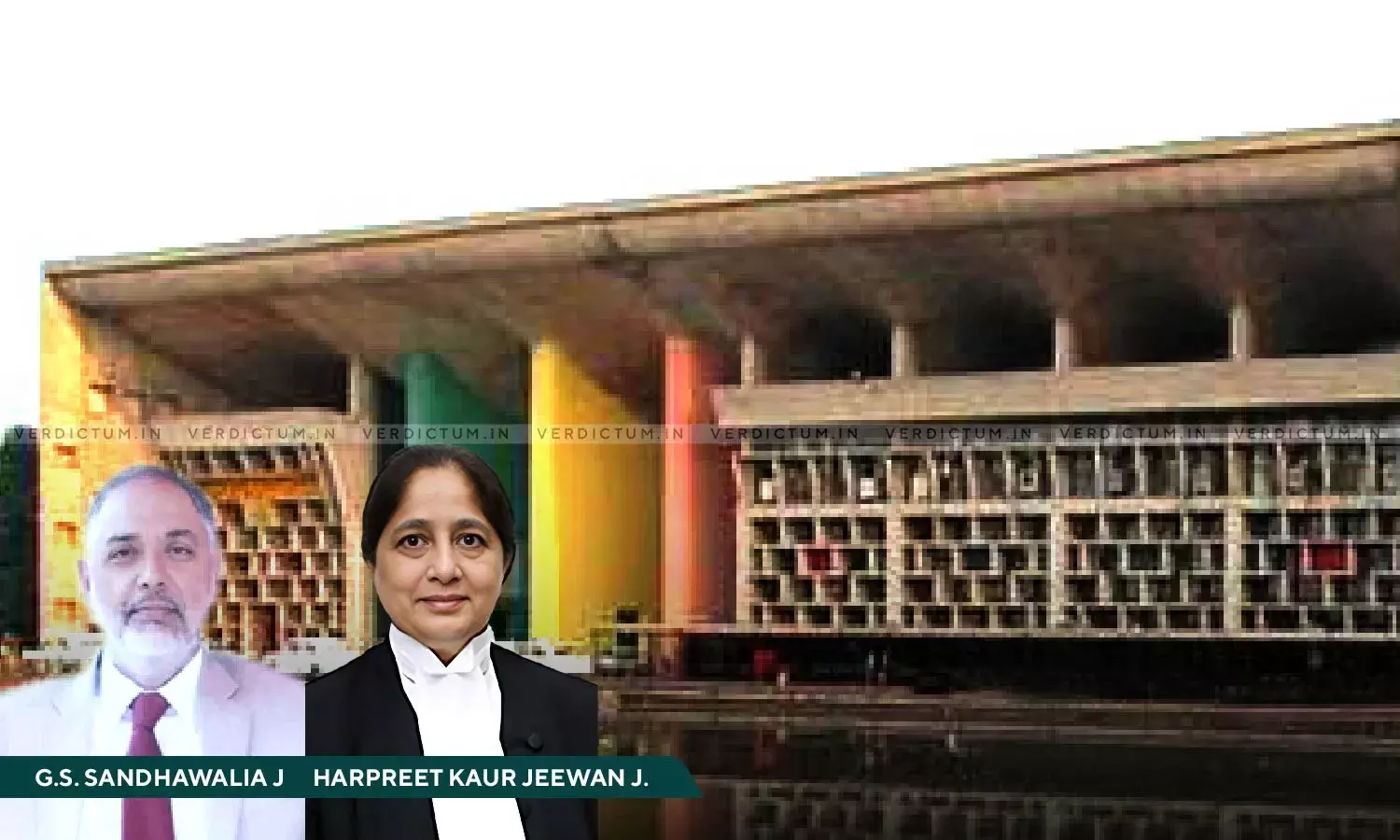Married Daughter Cannot Be Excluded From Appointment On Compassionate Grounds Under Policies Or Rules: P&H HC

The Punjab and Haryana High Court held that a married daughter cannot be excluded from consideration for appointment on compassionate grounds under the policies or relevant rules.
The Court said that even a son would get a right of consideration though married and not on good terms with his parents whereas a married daughter having a good relationship with the deceased Government employee and in a position to look after the widow would be excluded.
A Division Bench comprising Justice G.S. Sandhawalia and Justice Harpreet Kaur Jeewan asserted, “… there is no discrimination inter se the two siblings on account of the fact that they are married and would be expected to be supporting their families and not be dependent upon the Government employee and it is not a gender based inequality. The classification is thus reasonable in the case of exclusion of both married brother or sister of the deceased Government employee.”
The Court agreed with the fact pointed out by the State counsel that both the unmarried brother and unmarried sister are eligible and by virtue of the marriage, both the brother and sister have been kept out of the zone of consideration.
“… a married daughter is shut out from even applying as she would not come within the zone of consideration whether she is dependent or not but exclusion is only on account of gender and it would be patently discriminatory. The deceased Government employee might have only been blessed with daughters and a widow who is not in a position to take up employment.”, the Court said.
The Court also said that merely because the daughters are married would not exclude them from the zone of consideration as they would be in a position to help the widow if they are given employment keeping in view the undertaking.
DAG Arjun Sheoran appeared on behalf of the appellants while Advocate Vijay Pal appeared on behalf of the respondent.
Brief Facts –
A batch of pleas was filed by the daughters who were denied consideration for compassionate appointments on the ground that they were married. The question for consideration before the Court was whether such an exclusion was justified.
Earlier, a Single Judge of the High Court held that a policy of the Panjab University excluding married daughters was violative of fundamental rights, and therefore the University filed an appeal against such a decision. The matter was hence before the Division Bench.
The High Court after hearing the contentions of both parties noted, “We are of the considered opinion that the exclusion at the outset in the case of a married daughter is apparently arbitrary. … the eligibility aspect and the fact that she may be dependent upon the deceased employee would be subject matter of consideration by the competent authority as per the scheme of the Government.”
The Court further noted that the rejection at the threshold only on the ground of gender would be violative of Articles 14 & 15 of the Constitution since in contrast similarly situated siblings like the son who may be married and living separately would come within the zone of consideration.
“It has been time and again observed that once a daughter always a daughter while a son might change on account of the fact that he is married and has a wife to look after who could have serious differences with her in-laws”, the Court observed.
The Court after considering various decisions by several High Courts which upheld the right of married women to be considered for the appointments held that there was no reasonable ground to take a different view.
“In Meenakshi Dubey (supra) the Full Bench of the Madhya Pradesh High Court held that Clause 2.2 of the policy dated 29.09.2014 which took out the married daughter from the right of consideration for compassionate appointment was unconstitutional. Reliance was placed upon judgment of the Apex Court in Dr. (Mrs.) Vijaya Manohar Arbat Vs. Kashirao Rajaram Sawai, (1987) 2 SCC 278 wherein the Apex Court had rejected the contention of married daughter that she was under no obligation to maintain her parents under Section 125(1)(d) Cr.P.C”, the Court said.
The Court further said that the order passed by the Single Judge in striking down the offending portion was justified.
“… the only issue is that direction to appoint the writ petitioner is not justified as the consideration further is to be left to the authorities as per the policy. Accordingly, the judgment of the learned Single Judge dated 17.01.2020 in LPA-462-2021 is modified to that extent”, the Court directed.
The Court, therefore, directed that the necessary exercise be carried out by the competent authority within 2 months.
Cause Title- State of Punjab & another v. Amarjit Kaur
Click here to read/download the Judgment


